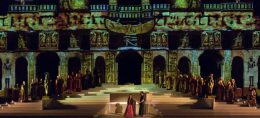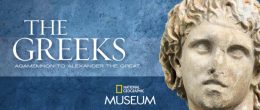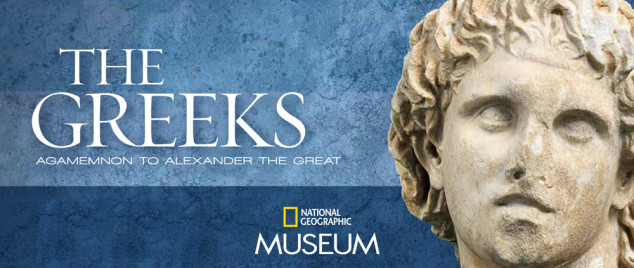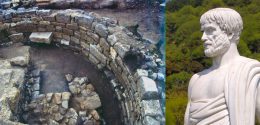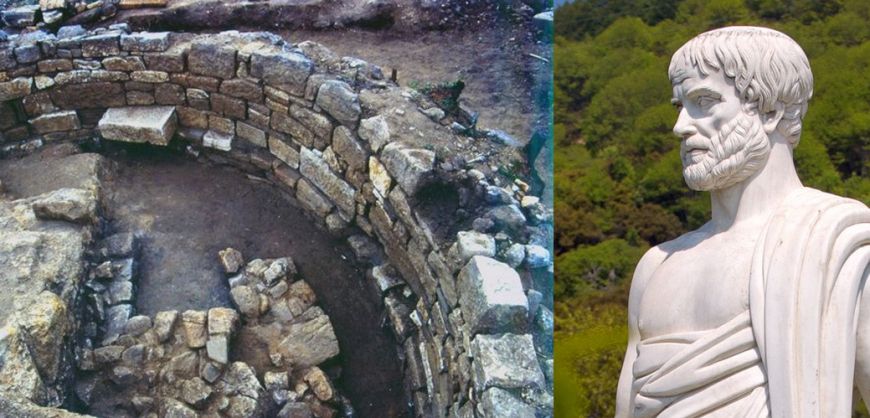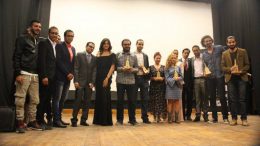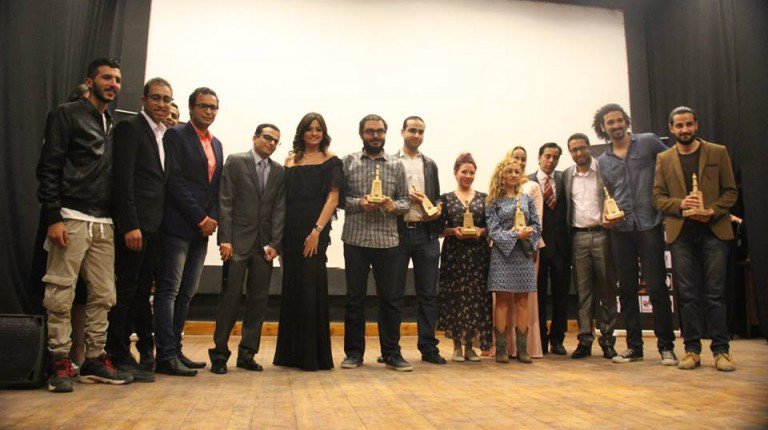 “The Greeks—Agamemnon to Alexander the Great”spans 5,000 years of Greek history and culture, presenting stories of individuals from Neolithic villages through the conquests of Alexander the Great. This unprecedented exhibition features more than 550 artifacts from the national collections of 22 museums throughout Greece, making it the largest exhibition of its kind to tour North America in 25 years. The Greeks makes its final of two U.S. stops, and its only East Coast appearance, at the National Geographic Museum, where it opens to the public on June 1.
“The Greeks—Agamemnon to Alexander the Great”spans 5,000 years of Greek history and culture, presenting stories of individuals from Neolithic villages through the conquests of Alexander the Great. This unprecedented exhibition features more than 550 artifacts from the national collections of 22 museums throughout Greece, making it the largest exhibition of its kind to tour North America in 25 years. The Greeks makes its final of two U.S. stops, and its only East Coast appearance, at the National Geographic Museum, where it opens to the public on June 1.
“The Greeks is the largest and most comprehensive exhibition of Greek history and culture to visit North America in a generation,” said Kathryn Keane, vice president of Exhibitions at the National Geographic Society. “From their Bronze Age beginnings to the height of classical civilization, the Greeks and the traditions they founded continue to have a profound impact on our lives today.”
The exhibition contains more than 500 magnificent artifacts, many of which have never been displayed outside of Greece. Curator favorites include iconic stone figurines from the Cycladic Islands; gold funerary masks and other treasures from Mycenae; classical marble statues from the Acropolis Museum of Greek poets, athletes and heroes; and brightly painted ceramic vases featuring scenes from Greek mythology and daily life.
Museum visitors will experience the exhibition through the eyes of the ancient Greeks. Some are well-known even today — Odysseus, Homer, Agamemnon, Leonidas, Socrates, Pericles, Philip II and Alexander — with their achievements recorded in epic poems, historical writings and mythological stories. But many of the people featured in the exhibition remain unnamed and known to us only through the archaeological record: a priestess of Mycenae, a warrior of the Iron Age, two noble women of the Archaic period and an athlete of the classical era. The objects buried with these individuals provide insights into their lives and the roles they played within their respective families and societies.
Woven throughout the exhibition are the inventions, innovations and institutions that provide the foundation for much of Western culture. Scholars today trace the origins of modern democracy; the Olympic movement; and Western philosophy, poetry and theater back to Greece. Even many of the monuments of Washington, D.C., owe their architectural style to the mathematicians, builders and sculptors of ancient Greece.
The Greeks was developed by the Hellenic Ministry of Culture and Sports (Athens, Greece), The National Geographic Museum (Washington, D.C.), the Field Museum (Chicago), the Canadian Museum of History (Gatineau, Canada), and Pointe-à-Callière Montréal Archeology and History Complex (Montréal, Canada). More information about The Greeks at the National Geographic Museum can be found here: http://natgeo.org/thegreeks. This exhibition is supported by an indemnity from the Federal Council on the Arts and Humanities.
In addition to this exhibition, National Geographic is producing a three-hour series “The Greeks,” which will air nationally on PBS, starting June 21, 2016 at 9 p.m. (check local listings). A rich complement of publications and public programming related to the exhibition will also be announced in early May. Special events will include an engaging Nat Geo Liveevent featuring Caroline Alexander, author of the recently published and critically acclaimed English translation of “The Iliad.”
The National Geographic Museum, 1145 17th Street, N.W., Washington, D.C., is open every day (except Dec. 25) from 10 a.m. to 6 p.m. Admission is $15 for adults; $12 for National Geographic members, military, students, seniors and groups of 25 or more; $10 for children ages 5-12; and free for local school, student and youth groups (18 and under; advance reservation required). Tickets may be purchased online at http://natgeo.org/thegreeks; via telephone at (202) 857-7700; or in person at the National Geographic Museum, 1145 17th Street, N.W., between 10 a.m. and 5 p.m. For more information on group sales, call (202) 857-7281.
(press.nationalgeographic.com)
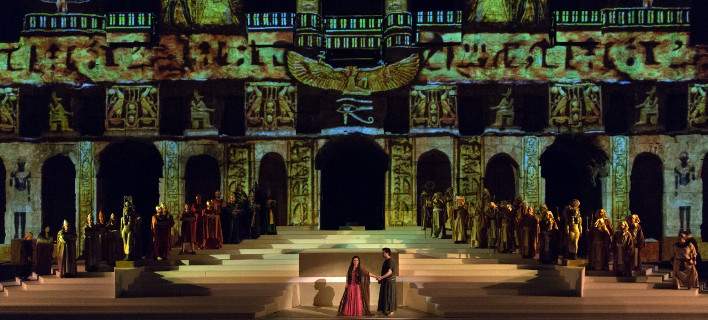 The Athens and Epidaurus Festival 2016 will begin this year on June 10, with a production of Giuseppe Verdi’s opera “Aida” at the Herod Atticus Odeon beneath the Acropolis, performed by the National Opera and directed by Enrico Castiglione, an Italian director and set designer noted for his “cinematic” approach and realism. The opera is in Italian, with Greek and English subtitles.
The Athens and Epidaurus Festival 2016 will begin this year on June 10, with a production of Giuseppe Verdi’s opera “Aida” at the Herod Atticus Odeon beneath the Acropolis, performed by the National Opera and directed by Enrico Castiglione, an Italian director and set designer noted for his “cinematic” approach and realism. The opera is in Italian, with Greek and English subtitles.